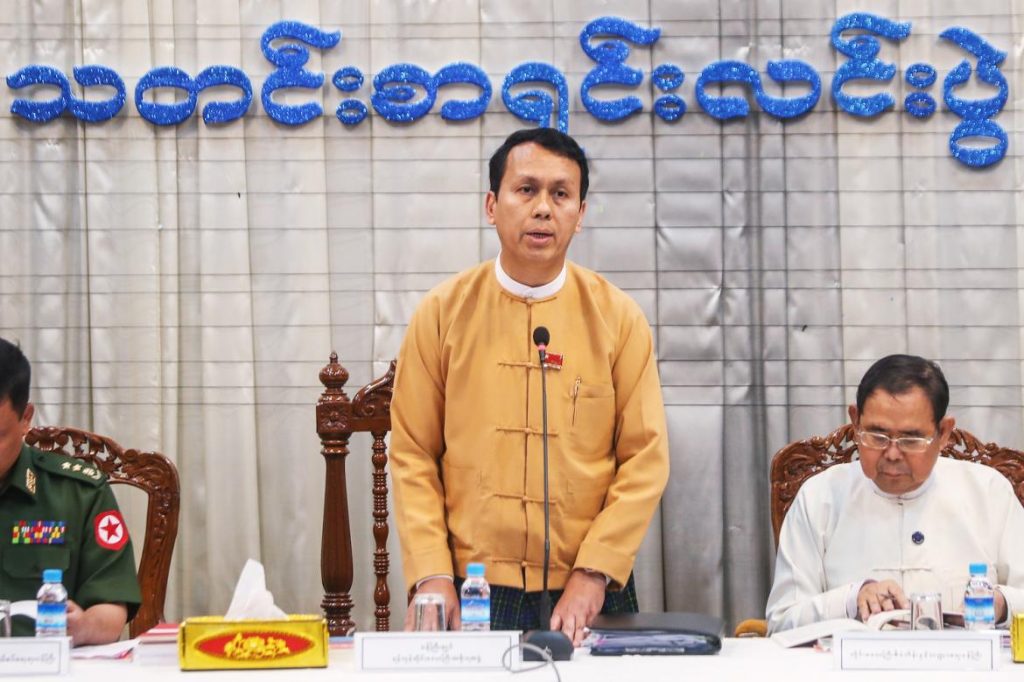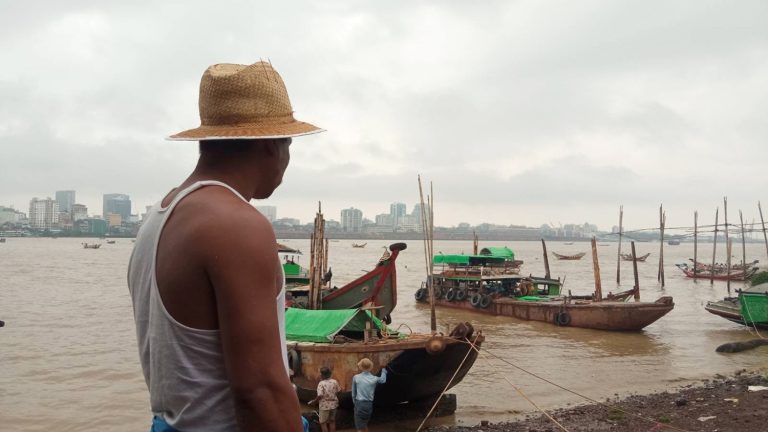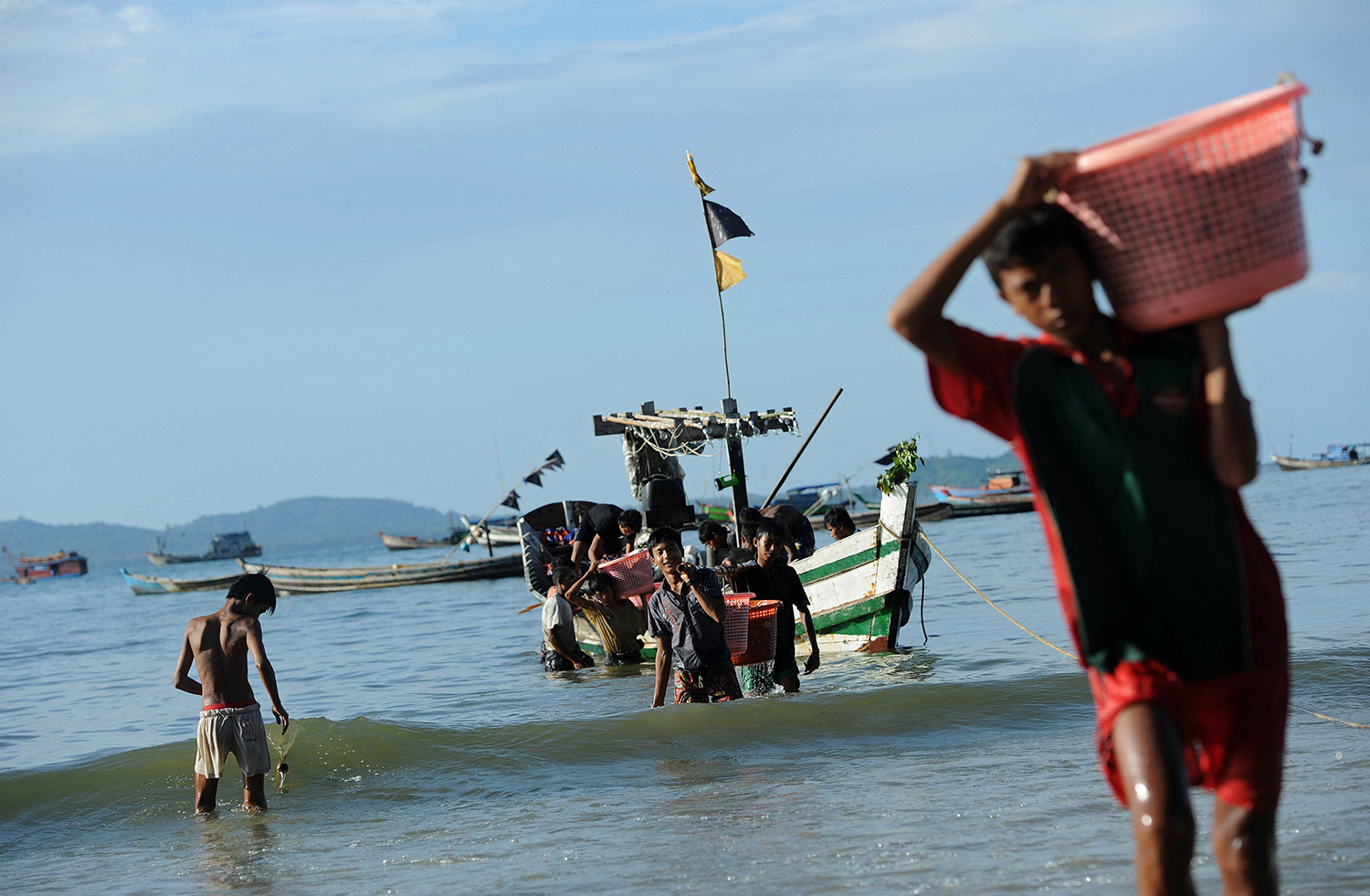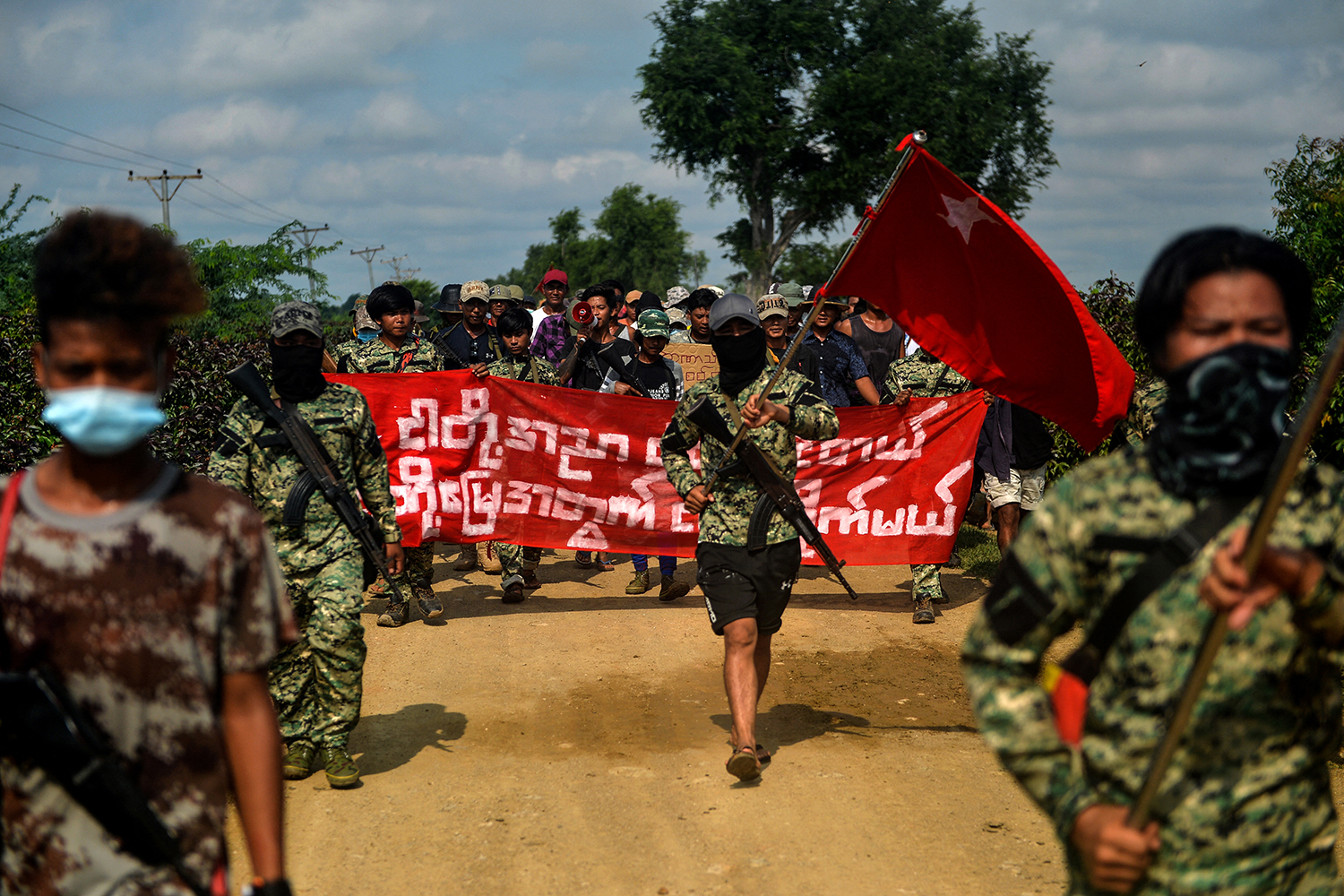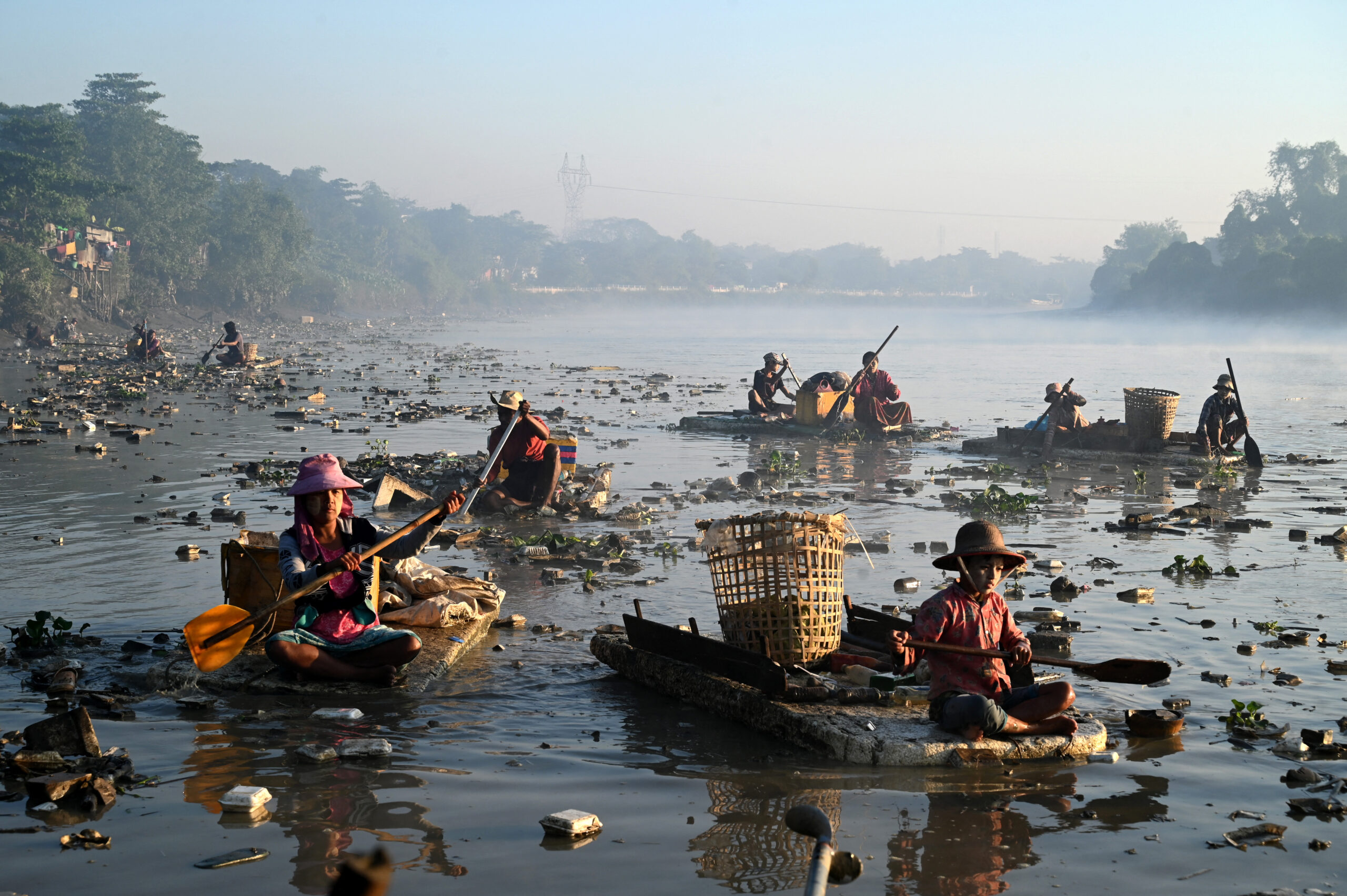The Yangon chief minister’s business ventures, including low-cost housing and Yangon Petrol, were the main talking points from a marathon press briefing on June 5.
By YE MON | FRONTIER
If there has been one defining feature of U Phyo Min Thein’s tenure as Yangon Region chief minister, it is his eagerness to get involved in business.
This determination to intervene in a range of industries through public investment has been controversial, though, drawing criticism from businesses, lawmakers and the media.
His business ventures were at the forefront of a marathon June 5 briefing held to mark the regional government’s third anniversary. Members of his cabinet opened the briefing by speaking for three hours about their activities in the 2018-19 fiscal year, and plans for the final two years of the government’s term.
The final hour was allotted to answering six questions from journalists. The discussion focused on three of Phyo Min Thein’s signature projects: the Yangon Bus Service, Yangon Petrol and low-cost housing.
Support more independent journalism like this. Sign up to be a Frontier member.
Paying it back
YBS was launched in January 2017 after the regional government installed the Yangon Region Transport Authority to replace the incumbent bus regulator, Ma Hta Tha, which had been established by the military.
The network has been consolidated into around 120 routes, down from more than 300. The system of individual bus owners has largely been scrapped, with most vehicles owned by one of two dozen companies.
The jury is still out on whether commute times have improved, but the new buses imported for the scheme have definitely improved passenger comfort.
A significant number have been bought with state funds. In early 2017, the regional government signed a K70 billion contract with two Chinese companies to import 1,000 buses.
The bright yellow vehicles were reportedly imported for two public-private partnerships set up by the regional government: Yangon Bus Public Company and Yangon Urban Public Transport Company. According to Reuters, the deal was brokered by the Chinese embassy in Yangon, and no tender was called.
The regional government had requested the funds in December 2016 for transport activities, and Yangon lawmakers later complained they had not been properly told how the money would be spent.
At the June 5 briefing, Phyo Min Thein said that the government was already close to getting a return on the K70 billion it had invested in the buses.
He said the government expected to earn back the entire sum by the end of 2021.
“We are close to reaching the return on investment. The companies will soon own the yellow buses 100 percent and they will then buy more new buses,” he said.
The chief minister did not provide any figures to support his claim that the government was making money on the investment in the buses and it appears to contradict the findings of the Yangon Region auditor general.
In September 2018, auditor general Daw Khin Than Hla told the Yangon Region assembly the two PPP bus lines had collectively lost K3.5 billion in the 2017-18 fiscal year, after a loss of K1 billion in 2016-17. She said the companies should be allowed to increase bus fares to a realistic level so they could make a return, but this has not happened.
Phyo Min Thein also addressed a long-delayed card payment system for bus passengers that the government says will make travel more convenient and avoid revenue being lost to fare-dodging. The government invited a tender in August 2017 for the system but the winning bidder later pulled out. In May last year another company, Asia Starmar Transport Intelligent, was selected and at an event to mark the second anniversary of YBS on January 16 the chief minister had promised the cards would be introduced within six months.
Phyo Min Thein acknowledged on June 5 that the deadline would be missed, saying only that the card system would be implemented in the “coming years”.
Controversial petrol
Yangon Petrol is another controversial business venture closely associated with the chief minister.
Under the Yangon Petrol model, the regional government leases land in prime locations at very low rates to a private company, Yangon Petrol Co Ltd, with the understanding that it will then sell fuel to customers at a low price. The three Yangon Petrol stations that have opened since late 2018 are undercutting other retailers by around K50 a litre.
The initiative has been unpopular with lawmakers and many businesses, which say that the Yangon Petrol model is anti-competitive and the initial deals lack transparency.
Daw Sandar Min, the representative for Seikgyikanaungto-1, who chairs the Yangon Region Hluttaw Finance, Planning and Economic Committee, said she had submitted a question about Yangon Petrol to the regional assembly but the speaker had not yet allowed it onto the agenda.
But on June 5 Phyo Min Thein said the low prices showed the initiative had been a “success”, and added that the regional government wants to open more Yangon Petrol stations around the city. He said it would consider allowing other businesspeople to participate under a franchise model. The regional government does not invest in the stations but gets to keep 20 percent of profits.
The chief minister also threatened to shut down private stations that the government believes are selling fuel at unreasonably high prices.
“I would like to ask them [fuel retailers] why they are selling fuel with high prices even though [Yangon Petrol] is selling it at low prices,” Phyo Min Thein said.
Yangon Petrol has been a deterrent to foreign investment in the sector because it has put downward pressure on prices. But the regional government’s ban on the opening of new fuel stations – other than Yangon Petrol – has also kept investors out of the market.
At the press conference, Phyo Min Thein justified these restrictions by saying foreign companies’ corporate practices were “not compatible with our business culture”.
But the regional government can’t block investors from buying into local companies that already have a network of stations.
On June 9, PTT Oil and Retail Business Company from Thailand signed a partnership with KBZ Group’s Brighter Energy to set up a fuel terminal and retail chain.
The KBZ-owned Nilar Yoma fuel stations will be rebranded to PTT and the two companies hope to open more than 70 stations around the country, according to media reports.
Foreign investment for low-cost housing
On June 5, Phyo Min Thein didn’t so much as double down on Yangon Petrol as triple down on it. At the press conference he said he would use essentially the same model to attract foreign investment in affordable housing projects.
The chief minister said the regional government would lease land to investors for free to encourage new low-cost housing projects.
“If we charge them for the land, then it just means the people who buy the houses will have to pay more,” he said.
He said that the regional government would take steps to ensure buyers don’t just resell the apartments at the higher market rate. This would include working with local civil society organisations to monitor compliance with the rules governing low-cost housing sales.
TOP PHOTO: Phyo Min Thein speaks at a four-hour press briefing on June 5 that gave journalists a rare chance to question the chief minister. (Nyein Su Wai Kyaw Soe | Frontier)


